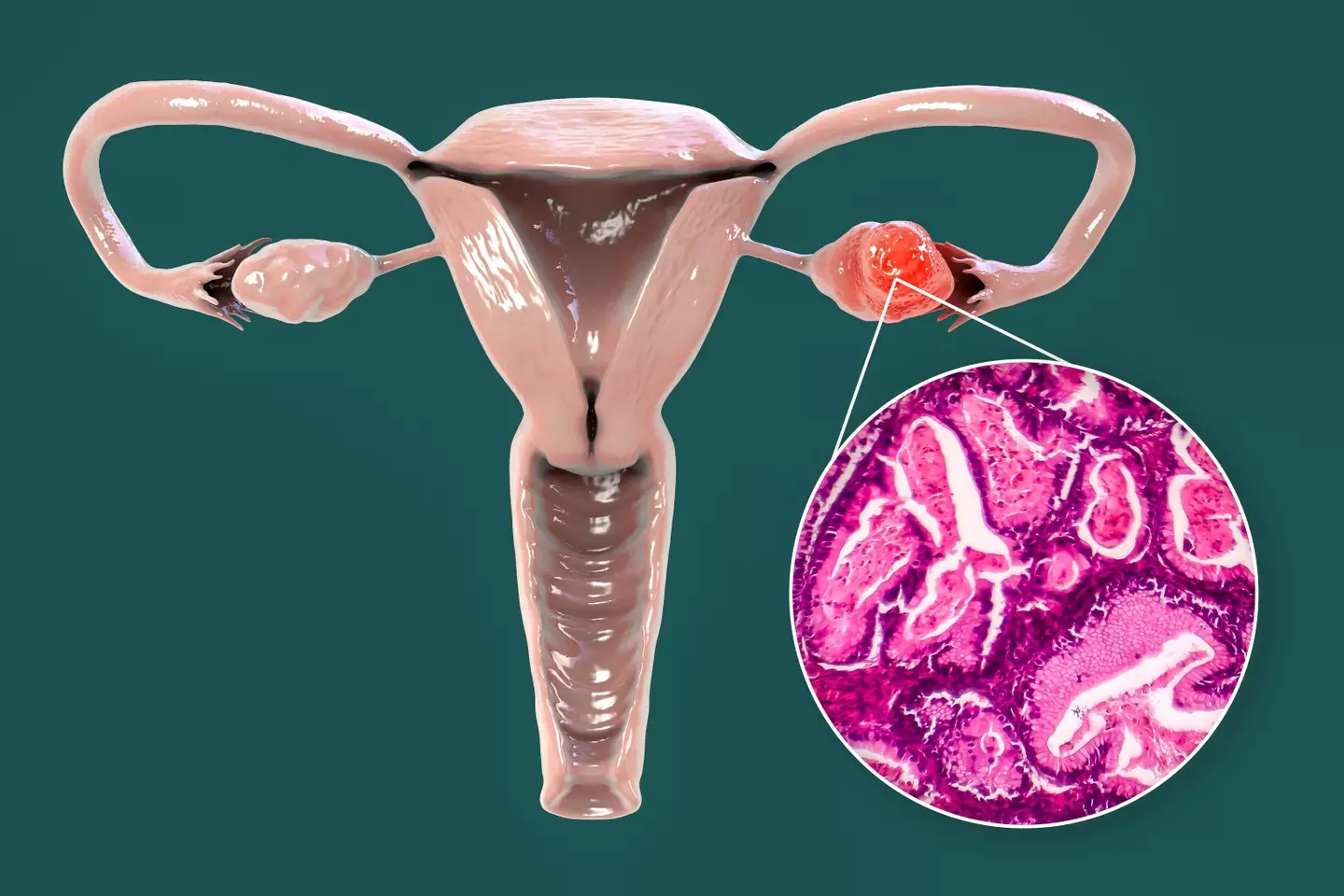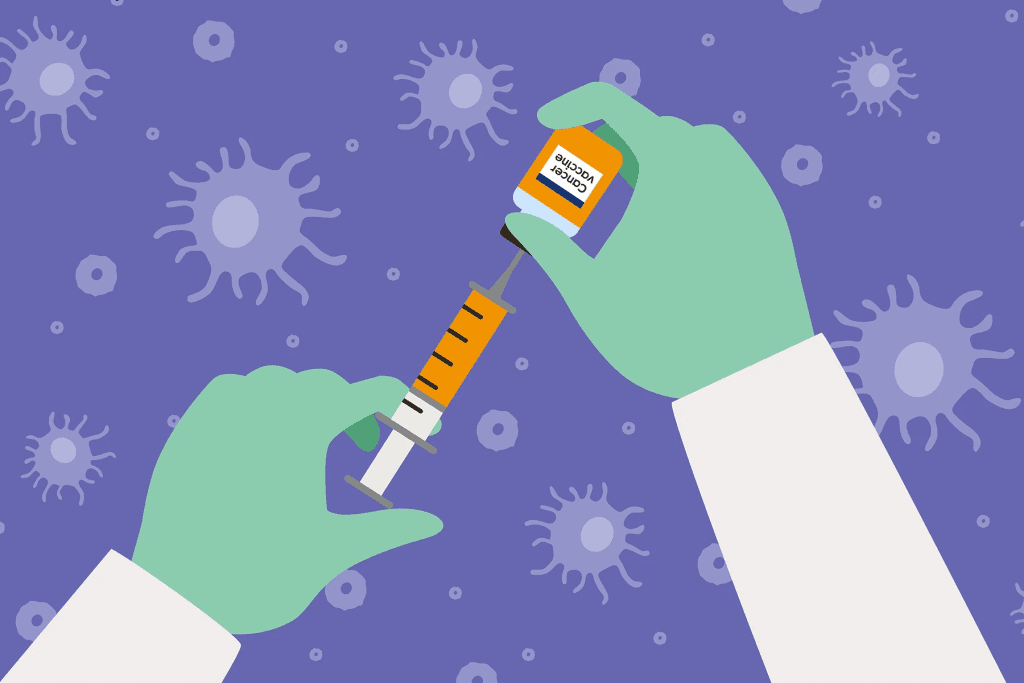The world of medical science is on the brink of an extraordinary breakthrough. Researchers at the University of Oxford have announced the development of a revolutionary ovarian cancer vaccine. This pioneering treatment, known as OvarianVax, has the potential to change the landscape of cancer prevention and, if successful, could eliminate ovarian cancer entirely. In this article, we’ll dive into the development process, how the vaccine works, and what this could mean for millions of women around the globe.
The Growing Need for an Ovarian Cancer Vaccine

Ovarian cancer is one of the deadliest forms of cancer, primarily because it is often detected too late. According to the National Cancer Institute, over 238,000 women in the United States were living with ovarian cancer in 2021. The prognosis for late-stage ovarian cancer is poor, as the disease is often diagnosed only after it has spread. Current treatment options include surgery and chemotherapy, but these methods can be invasive and taxing on the body.
An effective vaccine could be a game-changer, offering a preventive solution to those at high risk of developing the disease. The aim is not only to detect ovarian cancer early but to prevent it from forming in the first place. This proactive approach could save countless lives and provide hope to families affected by this devastating illness.
How OvarianVax Works: Teaching the Immune System to Fight Cancer
The innovative vaccine, OvarianVax, works by training the immune system to recognize ovarian cancer cells as soon as they begin to form. Similar to the HPV vaccine, which targets the virus responsible for most cervical cancers, OvarianVax identifies specific proteins on the surface of ovarian cancer cells. These proteins act as markers, alerting the immune system to the presence of potentially dangerous cells.
Dr. Ahmed Ahmed, the lead scientist on the project, explains, “Teaching the immune system to recognize the very early signs of cancer is a tough challenge. But we now have highly sophisticated tools, which give us real insights into how the immune system identifies ovarian cancer.” The vaccine triggers an immune response to attack these cells at the earliest stages, thereby preventing them from developing into full-blown cancer.
The Science Behind the Vaccine: Targeting Cancer at the Cellular Level
OvarianVax relies on advanced immunology techniques that Cancer Research UK has been funding. The researchers have focused on identifying which proteins on the surface of early-stage ovarian cancer cells are most easily recognized by the immune system. This focus on cellular markers is critical, as it enables the immune system to act before the cancer has a chance to spread.
Using lab-grown organoids, which are miniature models of ovarian cancer, scientists are testing the vaccine’s ability to eliminate these cancerous cells. The goal is to create a vaccine that not only prevents the spread of cancer cells but also prevents the initial formation of ovarian cancer altogether. If the vaccine succeeds in these early stages, it could potentially be used to protect women who are genetically predisposed to the disease or otherwise at high risk.
What Makes OvarianVax Different from Traditional Cancer Treatments?
Most traditional cancer treatments focus on removing or shrinking existing tumors. However, OvarianVax takes a preemptive approach, aiming to stop cancer from developing in the first place. Dr. Ahmed emphasizes that the focus here is on preventing the formation of the initial cancer cells, not on treating a fully developed tumor.
This preventive approach is not only less invasive but also potentially more effective. By targeting the very first cancer cells that appear, the vaccine could dramatically reduce the likelihood of the disease progressing to more dangerous stages. Unlike chemotherapy, which can cause significant side effects, OvarianVax offers a safer and more focused method of tackling cancer.

The Road to Clinical Trials and Potential Challenges
While the promise of OvarianVax is exciting, researchers caution that it may take several years before the vaccine is widely available. The vaccine will first undergo rigorous testing in clinical trials to ensure its safety and efficacy. Clinical trials are a critical step in the development of any new medical treatment, as they provide researchers with essential data on how the vaccine performs in diverse populations.
Michelle Mitchell, Chief Executive of Cancer Research UK, acknowledges the importance of this phase, stating, “Projects like OvarianVax are a really important step forward into an exciting future, where cancer is much more preventable. This funding will power crucial discoveries in the lab which will realize our ambitions to improve ovarian cancer survival.”
One of the primary challenges in developing any cancer vaccine is ensuring that it effectively targets cancer cells without triggering adverse immune reactions. While the HPV vaccine has been highly successful in preventing cervical cancer, not all cancer vaccines have been as effective. However, the OvarianVax team remains optimistic, citing recent advancements in immunology and vaccine technology.
The Future Impact: A New Era of Cancer Prevention

If successful, OvarianVax could mark the beginning of a new era in cancer prevention. Similar to the impact of the HPV vaccine on cervical cancer, this vaccine has the potential to drastically reduce ovarian cancer rates worldwide. Dr. Ahmed is hopeful that the vaccine could even lead to the eradication of the disease, stating, “We’ve seen success with the HPV vaccine – it’s really, really incredibly effective.”
The possibility of preventing ovarian cancer before it even begins represents a monumental shift in how we approach cancer treatment and prevention. For women at high risk of developing ovarian cancer, this vaccine could provide peace of mind and a new level of control over their health.
A Path Toward Better Cancer Prevention Strategies
The development of OvarianVax underscores the growing focus on preventive healthcare. Rather than waiting until a disease takes hold, scientists are looking for ways to stop illnesses before they start. Cancer prevention through vaccination could become a cornerstone of healthcare in the coming decades, reducing the need for invasive treatments and improving the quality of life for millions.

While widespread use of OvarianVax may be years away, its development is a critical step forward in the fight against ovarian cancer. The efforts of the research team at the University of Oxford and the support from Cancer Research UK illustrate the power of scientific collaboration and innovation. By combining state-of-the-art immunology with a targeted approach, OvarianVax has the potential to save countless lives.
Conclusion: A Hopeful Outlook for Ovarian Cancer Prevention
The development of the world’s first ovarian cancer vaccine is a testament to the progress that has been made in medical science. With OvarianVax, scientists are working to transform the future of cancer prevention, offering hope to women at risk of ovarian cancer. While clinical trials are still needed, the promise of this vaccine is undeniable.
As we look to the future, the success of OvarianVax could inspire more preventive measures across other types of cancer, bringing us closer to a world where cancer is no longer a death sentence. The journey is far from over, but each step forward brings us closer to a future where preventive care leads the way.


